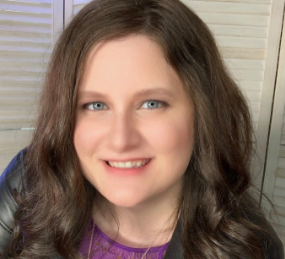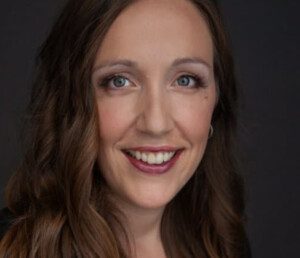Don’t let the naysayers talk you out of an ASD assessment if you’ve begun suspecting you’re autistic.
Those skeptics have an outdated understanding of autism.
Have you heard, “You can’t possibly be autistic,” or, “There’s no way you have autism,” from family members, your therapist, your primary care doctor or someone else who knows you’ve been thinking of undergoing an autism assessment?
Don’t let their comments stop you from pursuing an evaluation.
“When I first brought up my suspicions to my primary care provider, they forwarded me to a psychologist,” begins Jennifer Parr, a multimedia artist.
“This psychologist seemed to have a highly outdated understanding of autism and seemed very unwilling to even ask me basic questions due to the fact that I seemed ‘conversational’ and could reply verbally to her questions,” continues Jennifer, who was eventually diagnosed with autism at 30.
“She said that because I seem normal, I can talk, appeared to make eye contact through the video call, and that it [possible autism] didn’t appear to have a major effect on my life (though she hardly asked any questions to know if it does or not) — that it wasn’t worth pursuing.
“I pushed anyway and she eventually asked some questions like, ‘Do you have an obsession with trains?’
“I informed her no, but proceeded to mention my main special interest of art, told her about my sensory issues and told her about my history of social difficulties.
“This made her hesitate a little, but she quickly said that while I do have autistic traits, it isn’t worth putting a label on it and that she would only diagnose me with generalized anxiety disorder (which I was already diagnosed with prior to this appointment).
“However, I’m stubborn and didn’t let this stop me from digging deeper and eventually found other doctors who were much more highly educated on autism.”
Some neurotypicals will find it difficult to understand why an adult NEEDS to find out if they’re on the Autism Spectrum.
If they’ve been functioning fully independently for years, drive, conduct banking and money management, shop, cook, take good care of the dog, pay bills on time, get along with their neighbors and perform well at their workplace – what’s the point of getting a document that says Diagnosis: Autism Spectrum Disorder?
Actually, there’s a behemoth of a point getting it!
A neurotypical, who’s never felt like an alien sent to earth to observe humans, cannot possibly grasp what it would feel like for that individual – who’s always felt like a misfit, failed, flawed – to finally get the reason why:
They have a variant of human neurotype – and not a defect in their personality or some malfunction in their brain.
If you’re an NT, and you know someone who wants an autism assessment, you will not do them any favor “reassuring” them they can’t possibly be autistic.
All your most tactfully composed words in the world will NOT change the way they feel inside – the way they’ve felt since childhood.
Just because this individual doesn’t display pronounced or stereotypical autism behaviors around you or others doesn’t mean they can’t be on the Spectrum.
Autism comes in many shapes, flavors, sizes and colors. Some Autists can deftly conceal their “weird” traits when around other people and have learned to act neurotypical.
- They have learned facial expressions and when to yield them.
- They’ve learned to suppress repetitive body movements (stimming) that NTs would consider strange.
- They may even alter their voice to sound “normal.”
- They may seemingly do small-talk well, but it’s mechanical and doesn’t feel natural to them.
If you, on the other hand, suspect you’re autistic, then don’t let the skeptics talk you out of an assessment. Forge ahead with getting that assessment scheduled.
Naysayers might say things like, “Oh, those are so expensive! It’s not worth it!” or, “Oh come on, you’re not autistic; you’re a manager at work!”
They may say, “How can you be autistic when you have lots of empathy?”
If you feel defeated by the skeptics, then you’ll want to avoid discussing the topic further – and just get the evaluation scheduled.
“Many of the people I’ve evaluated have neurotypical people in their life (many of them parents, but also therapists or friends) who don’t understand why they think they might be autistic,” says Dr. Jessica Myszak, licensed psychologist, and director of The Help and Healing Center, whose practice is mostly autism assessment for adults.
“Some of these people [NTs] may even have worked in special education or mental health — and most of these people were misinformed about what autism looks like in high-masking adults.
“If you’re seeking an evaluation, you’re not doing it for them — you are doing it for yourself, and the benefits of validation, education, and support far outweigh any negatives.”
When I began seriously suspecting that I was autistic, I told nobody.
I went ahead and got the assessment. However, I’ve come to realize that had I told certain people who knew me well enough, they would not have doubted the possibility I had ASD!
Anyways, I had felt no need to tell a single soul that I was seeking a diagnosis.
When I informed a sister of the diagnosis, she wasn’t the least bit surprised.
Neither was her husband, our brother whom she told, his wife, nor three adult nieces. Hmmm…guess I had never learned to mask very well !
The Likelihood that an ASD Assessment Will Come Back Negative
Dr. Myszak explains, “My experience is that when someone has taken the time to research autism and strongly believes it fits with their experience, they are almost always correct.
“I have not evaluated anyone who has been 100% convinced they were autistic that I did not agree with.
“When people are uncertain about it, there is more variability, and when a spouse or parent thinks that a person is autistic — but that person does not agree — that is a distant third in terms of likelihood that they will meet criteria for a diagnosis.”
The bottom line is that you should not let anyone stray you away from scheduling an autism assessment.
 Jennifer Parr has always had a devoted obsession to art and creativity. Her ultimate goal is to help others discover their own creative side and find enjoyment through art and crafting.
Jennifer Parr has always had a devoted obsession to art and creativity. Her ultimate goal is to help others discover their own creative side and find enjoyment through art and crafting.
Dr. Jessica Myszak, a psychologist who specializes in autism assessment for both children and adults, is the founder of Autistic Support Network. She sees clients in-person in the Chicago area and over telehealth in 31 states. Learn more about her practice at helpandhealingcenter.com.
 Lorra Garrick has been covering medical and fitness topics for many years, having written thousands of articles for print magazines and websites, including as a ghostwriter. She’s also a former ACE-certified personal trainer. In 2022 she received a diagnosis of Level 1 Autism Spectrum Disorder.
Lorra Garrick has been covering medical and fitness topics for many years, having written thousands of articles for print magazines and websites, including as a ghostwriter. She’s also a former ACE-certified personal trainer. In 2022 she received a diagnosis of Level 1 Autism Spectrum Disorder.
.











































